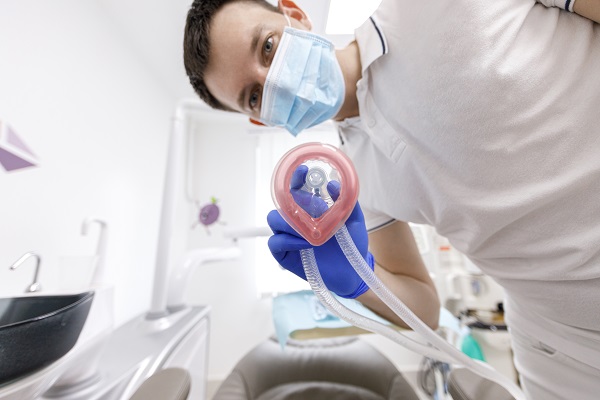Different Levels of Sedation Dentistry

Sedation dentistry might be necessary when feeling anxious or nervous about visiting the dentist for routine care or certain procedures. Dental anxiety is a common condition and it can be caused for a variety of things. Some people have a fear of dentists due to past negative experiences, while others might be afraid of the tools used by dentists.
Sedation dentistry serves a crucial role since people with dental anxiety may do anything to avoid going to the dentist. As a result, minor dental issues are left to fester until they turn into something more serious. This leads to higher dental bills, more pain and extreme discomfort, all of which could be avoided if the appropriate measures were taken early on. It is the pain caused by serious dental issues like cavities and infections that often forces people with dental phobias to face their fears and see a dentist.
The different levels of medication used in sedation dentistry
Sedation dentistry aims to keep patients with dental phobias relaxed during their treatments. This makes their experience at the dentist more pleasant while the dentist can get more work done. Here are the various levels of sedatives that can be used to keep patients calm and relaxed during treatments:
1. Minimal sedation
This is the first level of sedation used to combat dental anxiety. It can involve inhaled medication like nitrous oxide, also known as laughing gas or oral medication. Laughing gas is used to keep patients calm and relaxed during their treatment. The medication is administered via a face mask and it takes effect within a few minutes. The effects wear off quickly, allowing patients to drive themselves home afterward.
Oral medication like Halcion, a type of valium, can be used to address the anxiety that might occur before getting to the clinic. The pill can be taken about an hour before the patient's appointment. Such medication will make a person drowsy, so transportation should be arranged.
2. Moderate sedation
These medications are used to put the patient in a reduced state of consciousness. The patient should still be able to respond to verbal commands given by the dentist during their treatment, but they might not remember what went on afterward. The patient's reflexes remain functional under the influence of these drugs and they can breathe without assistance. IV administration and oral medication are typically used as moderate levels in sedation dentistry.
3. Deep sedation
This level of sedation leads to very low levels of consciousness and the patient might not be able to respond to commands. The patient might also need assistance breathing and keeping their airways open. This level of sedation dentistry is usually used during surgical treatments.
4. General anesthesia
This leads to a total loss of consciousness that the patient cannot be awakened from even when stimulated with pain. The patient will need a ventilator to keep their airways open. This level of sedation is typically performed in a hospital setting for more complex oral procedures.
Explore dental sedatives
Call or visit our Stevensville clinic if you need help getting past any dental phobias.
Request an appointment here: https://bitterrootvalleydentalcare.com or call Bitterroot Valley Dental Care at (406) 625-0382 for an appointment in our Stevensville office.
Check out what others are saying about our dental services on Yelp: Sedation Dentistry in Stevensville, MT.
Recent Posts
Before the invention of dental implants, the only options available to replace a lost tooth were dentures or bridges. Today, dental implants offer a solution that looks and feels like a natural tooth. They are attractive and comfortable, and they provide many advantages.If you are considering replacing a lost tooth with an implant, there are…
A dental crown is used to restore teeth that are in bad shape. Oftentimes, they are needed for teeth that have become cracked, chipped or broken. Additionally, general dentists recommend them for teeth that have severely decayed due to an infection. While they are one of the most common dental restorations, many wonder how long…
Understanding more about wisdom tooth extraction and why it is necessary is a great idea. Many people need their wisdom teeth extracted from their mouths in order to support overall good oral health. This extra set of teeth can potentially cause problems with the existing teeth, making it necessary for anyone whose wisdom teeth are…
You know how to care for your dentures, but you may not know much about denture repair. However, even by taking care of your dentures, you may still have an accident. Things just break sometimes, including dentures. If you damage your dentures, here is what you can do.Broken dentures are considered a dental emergency. However,…


